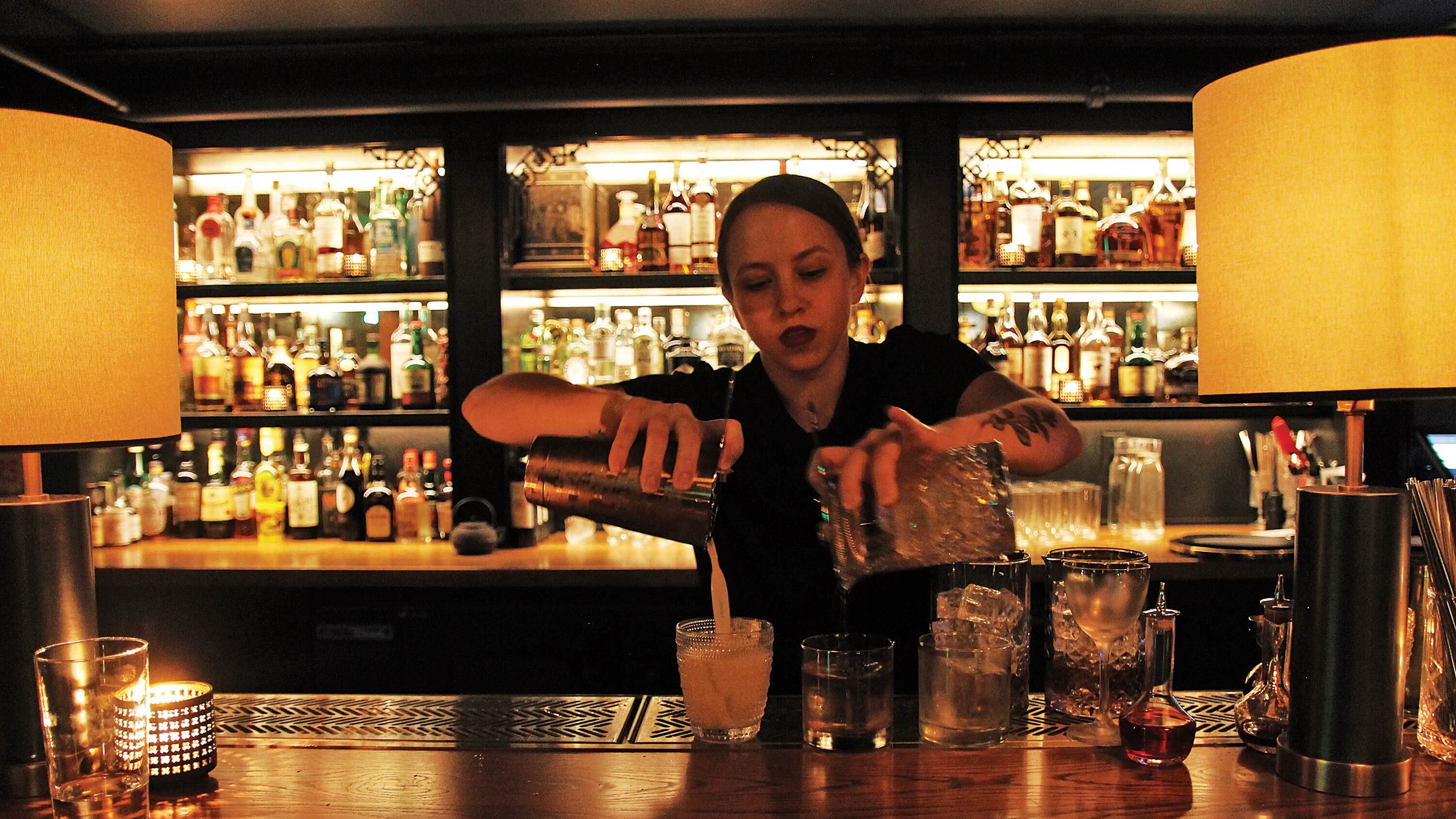Oregonians might be looking at a lot of early nights when the state first reopens in the wake of the coronavirus pandemic.
Drafts of Gov. Kate Brown's plan to lift parts of the statewide stay-home order show restaurants and bars could be asked to halt food and alcohol consumption by 10 pm. The Oregonian first reported on the guidelines, which also advise certain businesses to keep information about visitors to assist with contact tracing in order to continue stemming the spread of COVID-19.
The documents paint a picture of a changed Oregon, one in which bar patrons are offered complimentary face masks and every customer entering a Stumptown Coffee or Pendleton Woolen Mills outlet must give their name and phone number at the door.
Last week, Brown introduced a three-phase plan for reopening the Oregon economy. Subcommittees have been formed to work out the details pertaining to various business sectors, including retail, personal services and hospitality.
In addition to the early last calls, the plan for restaurants includes limiting occupancy to half of total capacity; suspending all self-service, including soda fountains and buffets; and prohibiting the use of jukeboxes, pool tables and other shared amenities. Video lottery machines must also be placed 6 feet apart and cleaned by an employee between each use.
The draft shows state officials trying to spot every place COVID-19 might be spread at a restaurant: It instructs eateries to provide single-serve packs of condiments or wipe down salt shakers and ketchup bottles after any group leaves a table.
The draft plan for restaurants is one of several being circulated by the governor's office for how a reopened Oregon might function until a COVID-19 vaccine becomes available.
Another draft document shows that any business that opens to visitors, not just restaurants, might be required to keep a log of each person's name, phone number and date of entry. The idea is that contact tracers—epidemiologists who seek to track the spread of disease—could find anyone who was in a shop or office at the same time as a person diagnosed with the virus.
State officials have drafted language for businesses to share with visitors as they ask for names and numbers: "This business is collecting basic information to share with public health in the event a COVID-19 case is identified associated with this business."
The same plan suggests employers might require workers to have their temperatures taken before starting a shift.
In a draft plan for retailers, state officials suggest that plastic glass barriers now used by grocery stores could become standard at any cashier station or customer service counter.
Interestingly, the drafts don't require the same protection for bartenders. Instead, the draft plan for bars suggests: "Counter and bar ordering is acceptable if the operation finds that this decreases worker exposure."
The draft shows state officials trying to figure out the legal ramifications of requiring masks in dining and drinking establishments.
"Strongly encourage all employees and customers to wear cloth face coverings," the draft plan says. "Customers do not need to wear face coverings while seated at the table. If a business sets a policy that all employees and customers are required to wear cloth face coverings, business management should consult with their legal counsel to determine whether or not such a requirement can be enforced and whether or not the business will provide a cloth face covering when a customer does not bring their own."


